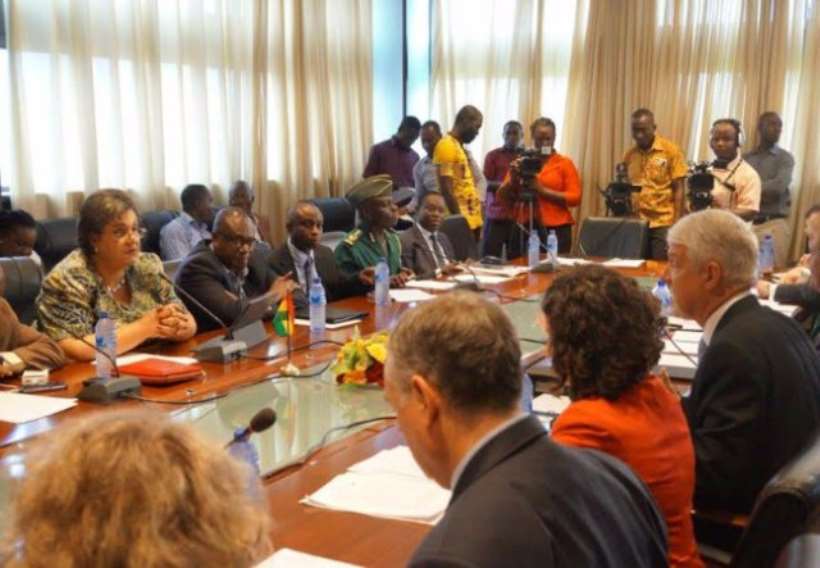 |
|
This week Ghana decided to sign and ratify the Stepping Stone Economic Partnership Agreement (EPA) with the European Union.
In welcoming the decision, EU Ambassador William Hanna said: "This new agreement will provide a long-term predictable framework to help increase trade and investment. It is a win/win deal for Ghana and the European Union."
He said Ghanaian exporting companies will preserve the duty-free preferences on the European market that today make them competitive. This means no quotas and no duties on all Ghanaian exports to the European market.
"This will protect thousands of jobs in Ghana, mainly in the agricultural sector. It will also encourage new investment to create more jobs in the future. In recent years Ghana has shown that it is competitive in the EU market," he added.
According to Mr Hanna, as Ghana moves to consolidate its status as a middle-income country, Europe will continue to partner it on its journey to create prosperity and sustainable development.
He added that "this agreement is a stepping stone to new and dynamic relations between Ghana and the European Union."
In the run-up to the debate in Parliament, many companies who are today engaged in exporting to the European market made a strong case for the EPA.
However, there were also calls for a cost-benefit analysis to be carried out. In fact, such an analysis was made in 2015 when the World Bank carried out a detailed study assessing the Economic Impact of the ECOWAS CET and Economic Partnership Agreement on Ghana.
This study showed that the EPA is estimated to increase profitability for 77 percent of firms in the manufacturing sector, mainly through lower input prices and prices for capital equipment.
An estimated 84 percent of workers in the manufacturing sector are employed by firms that benefit from the implementation of the EPA.
As benefits occur mainly through lower prices for imported inputs and capital equipment, rather than higher output prices, there is no harm to consumers and there is potential for a longer-term boost in productivity and growth.
This is consistent with the focus of the EPA being to target tariff reductions on inputs and intermediate products which favours local manufacturers.
The study predicts that there may be some profit losses for some firms, yet very few manufacturing firms become unprofitable as a result.
As the liberalization takes place very gradually over many years, firms will have the time to upgrade and restructure in order to adjust to the new environment.
Continued duty-free access to the EU market particularly benefits many of the priority sectors in Ghana’s National Export Strategy, 2013-17. The priority sectors include processed cocoa products, fruit and vegetable products, and fish.
The EPA also foresees EU support to help firms become competitive and take advantage of the new opportunities it opens.
The EU including its 28 Member States is providing the equivalent of $500 million per year in official development assistance to Ghana, in areas such as private sector development, trade facilitation, fiscal transition and competitiveness.
Although the stepping stone agreement only applies to Ghana, both the EU and West Africa are fully committed to the success of the regional EPA and continue to work towards the completion of the signature and ratification process with countries in the region. The EPA promotes regional integration, intra-regional trade and regional value chains.
Regional integration will enable Ghana and its West African neighbours to take advantage of the opportunities of globalisation and to make progress both in terms of inclusive growth, diversification of productive activities, and decent jobs.
Source: Myjoyonline.com

Comments